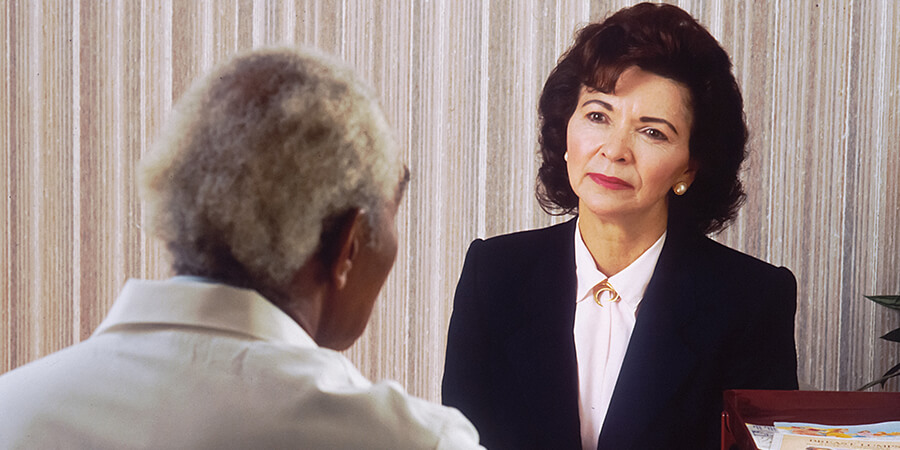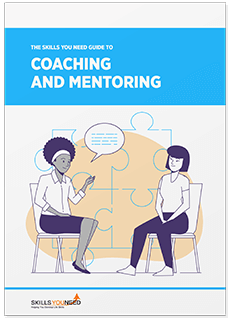Essential Life Skills Every Therapist Should Have
See also: Understanding OthersStruggling with stress, relationship problems, addiction, and other personal issues can easily take a toll on your mental health. And that's where a professional therapist comes in to offer support and help shoulder some of the heavy emotional burdens to promote mental, physical, and emotional well-being. However, every therapist must have a specific skill set to succeed in counseling and positively impact people's lives.
While you can't change people, you can help encourage them to move toward change. And that means building a healthy and trusting relationship with your client. Equipped with the right skills, a therapist can support their clients through treatment like EMDR treatment and help them achieve their goal of overcoming trauma to lead a fulfilling life. In this article, we will look at some of the essential skills you need to succeed as a therapist:

1. Objectivity
Objectivity is one of the key life skills you need to help clients reach their therapeutic goals. Being objective as a therapist enables you to separate your values, beliefs, expectations, and experiences from those of your clients. This helps prevent you from bringing your problems and issues into your client's sessions. This way, your past experiences won't get in the way of viewing your client's issues objectively. Putting your issues aside so you can be objective when working with clients is crucial to achieving success as a therapist.
2. Boundaries
Another skill every therapist needs to succeed in their role is the ability to set and maintain boundaries. Boundaries are typically the rules you develop for yourself but not the rules you make for your clients to control their actions. Successful therapists should set and maintain healthy boundaries with their clients to be able to provide ethical therapy.
As a therapist, boundaries can help you achieve a healthy work-life balance, which allows you to be physically and emotionally prepared to be strategic, empathetic, objective, and effective in supporting your clients. That means being able to communicate to your clients the limits and nature of the therapeutic relationship right from the initial consultation. Setting boundaries also helps model appropriate behavior for your clients, which can help them improve their mental health.
3. Critical Thinking
You also need to develop strong critical thinking skills as a therapist. These skills come in handy, especially when making diagnoses and developing treatment plans. Critical thinking skills enable you to quickly identify alternative treatment plans if the first treatment approach fails. They also allow you to determine what's working and what's not, so you can know what changes or improvements you need to make to the treatment.
You also need to have a scientific mind, stay on top of the latest research trends and have in-depth knowledge of medication to effectively discuss the medications your clients might be taking. This way, you'll be able to prescribe or recommend alternative treatments for your clients that are more likely to be effective.
Having good critical thinking skills also enables you to detect minor differences between problems not related to one another and be able to determine the root of the problem. For instance, a client who claims their partner is intolerable could imply they're abusing them. Seeing the bigger picture and connecting different problems a client may be facing can help you establish what is under the surface, so you can determine the kind of support they need the most.
4. Strong Communication Skills
As a therapist, communication is the hallmark of what you do. That's because psychology involves understanding human behavior and what influences them to act in certain ways. Different clients have different conditions. Communicating effectively with clients is crucial for gathering important information. That means asking clients relevant questions to explore or clarify thoughts and feelings without making them feel like they're being interrogated or causing distress.
Good verbal communication skills can also help build your client's confidence and create a safe space for the client to open up during therapy sessions. A lack of good communication skills during therapy sessions will only reduce the chances of your client opening up about their struggles. Besides verbal communication, effective communication also involves attending and active listening.
Active listening and attention are vital skills in the therapeutic process since they enable you to pay full attention to what the client is saying without distraction. Not only does this make your client feel supported, but it also helps you build a therapeutic relationship and form a helpful ongoing dialogue.
5. Patience
Patience is another equally important skill every therapist should possess to effectively treat patients. Clients have unique behaviors, struggles, and patterns that can greatly influence how they interact with you. Some clients may open up quickly, while others can take several days, if not weeks, before they reveal the struggles they're facing in life.
It's critically important to be able to stay calm and in control when you're faced with resistance or delay. Being patient allows you to understand that things may not always turn out as planned and realize that it can take time before substantial results can be seen.
Instead of pushing someone who is not ready to move forward, be ready and willing to trust the process and stay motivated even when results aren't instantly obvious. While you can easily become restless when therapy sessions aren't progressing as expected, you need to be able to be patient with your client to start seeing substantial results.
6. Empathy
A good therapeutic relationship is built on empathic understanding. You can show empathy by identifying and understanding your client's experiences and emotions even when they don't explicitly share their feelings and thoughts with you. You can also empathize with your client by showing them you understand their feelings and choices even when you disagree.
To show empathy, you must be emotionally attuned to your client's needs and help them recognize and articulate their feelings. Being empathetic can allow you to easily notice an angry patient struggling with feelings of inadequacy and determine the best way to help them.
Further Reading from Skills You Need
The Skills You Need Guide to Coaching and Mentoring
Coaching and mentoring require some very specific skills, particularly focused on facilitating and enabling others, and building good relationships. This eBook is designed to help you to develop those skills, and become a successful coach or mentor.
This guide is chiefly aimed at those new to coaching, and who will be coaching as part of their work. However, it also contains information and ideas that may be useful to more established coaches, especially those looking to develop their thinking further, and move towards growing maturity in their coaching.
Endnote
While some skills mentioned above are learned during education, others are more innate. As a therapist, being able to make clients feel comfortable and at ease often takes a lot of effort and practice. Adopting these vital skills in a professional way will help you achieve success in your career.


